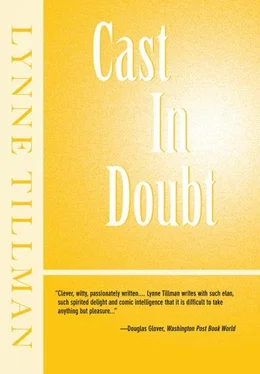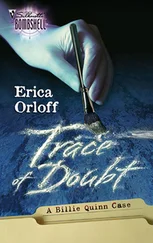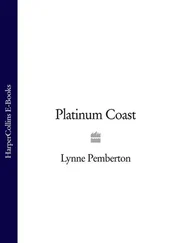Sitting by the window, with the cacophonous and comforting sounds of harbor life playing on my ears like incidental music, I open my book. We non-Gypsies, I learn, are designated by them as gadjo or gadje , for whom they have nothing but contempt. “The proper meaning of gadjo is peasant, farmer, with the pejorative sense of ‘clodhopper,’ ‘yokel,’ or ‘bumpkin.’” To the Gypsies, we are the sedentary ones. To these wanderers, nomads, travelers, we are ones who do not move, who are fixed. My eyes fix on these lines. Sedentary indeed.
Instantly I am overcome with exhaustion, and nearly close the book. So weary, even my eyes are tired, but I do not stop reading. I sense that I must go on. I flip to another chapter. “If the Gypsies have no system of writing, as we usually understand the word, they nevertheless use a very full list of conventional signs which enable them to communicate visually and in time. This secret code is called the patrin (from patran , leaf of a tree)…”
It’s pleasing to discover that patrin , their secret means of communication, is linguistically close to the English “pattern.” As this sentence is at the bottom of the page, I again nearly close the book, but resist, fight my weariness, and continue reading. “Each tribe has its own distinctive sign, and it is the chief who is usually the holder of the sign; and this sign is a secret.” Then down to the bottom of the next page: “Thus a Gypsy woman will be the first to go into a farmhouse on the pretext of selling items…or to tell fortunes.” She will find out family secrets, important family matters, recent illnesses and so forth. “As she is going away, she will scratch on the wall or mark with chalk or charcoal signs which only her racial brothers will know how to make out.”
These signs allow the next Gypsy to reveal closely held family secrets to the amazed family. How clever, I think.
Ultimately the full import of what I have just read reaches my clotted brain. “In chalk or charcoal.” Chalk. The chalk drawings or signs on the wall in Helen’s room may not have been made by Helen. They may have been drawn or penned by the Gypsy woman. This was the break I needed. What I ascertained to be penises and vaginas could have been messages from the Gypsy, written in her alphabet or code, which I don’t know and would never even be able to guess.
I am stunned. It is such a good story, and so mysterious, and I haven’t even made it up! I am in thrall to it, and frightened by it. For next I learn, as I study the pages before me, that Gypsies use herbs and plants and all manner of vegetable and animal matter for spells, to achieve various results. In a flash a picture of Helen appears before me and I see a small silver ball attached to a silver chain. The necklace hung around Helen’s neck the last night I saw her. It may have contained a plant, a potion. Ridiculous, Horace, I tell myself. Still, weird, foul, foreign herbs — or worse — may account for the dreadful smell, the aroma that suffused Helen’s room. That awful odor could have been produced by rotting vegetable matter, spoiled organic stuff, and have been a potion meant to cast a spell, over me perhaps, and which I may be obeying even now as I read. My acute exhaustion? A potion to do what?
How crazy I felt in these moments, how bereft of the means to know what the truth was or to judge my experience in and of Helen’s room. I cannot adequately signify or express it. What I can articulate is that it was, and is, in no way like me to have thought I could be subject to a spell. Or, indeed, to believe that I was the victim of a plot. I was the one who confabulated, who wrote plots, the one who knew. Yet the logic I used proceeded in this manner: I may have been under a spell because even imagining that I could be, or to have believed myself to have been, made it seem more likely that I was or could have been. It was not like me, not at all like me, to entertain such nonsense.
I did not completely accept any of the above, but I did allow it, seriously. I passed a sleepless night on account of it. I would awaken startled, as if shaken by Yannis, and think, what if it’s true? In rebuttal I would answer, You are a fool, Horace. Then I would place my head on the pillow and try to fall asleep, counting from one thousand backward. (Both my parents were insomniacs.) Yet the persistent and disturbing idea — that one could not know what one did not know — recurred. I awoke with a start to the question, What if it’s true? But it was truer to say that I didn’t know the what of it, what was what, the what of the question.
Part 3. The Interrupted Life
I begin the journey south on a blustery Cretan morning. Though I passed a relatively sleepless night, fraught with doubt and unanswerable questions and, upon waking, feel enervated, I am committed to my task and resolved to be focused. I have always been resilient. As one gets older one knows how to pace oneself; it is one of the few comforts one has. The clouds are moving anarchically, to match my own eager and jumpy spirits. For my eyes alone, they perform wicked tricks, and the heavens above compose messages set in skywriting. I am filled with a peculiar, nourishing hope. I will leave this city I love, my adopted home, to itself.
As I drive through it, I wave to a few of the shopkeepers who stand in front of their places of business. I remember that I owe Lefteris a courtesy call — he repaired my radio, but refused payment. That means a game or two of tavoli and some ouzo. The baker and his wife have just set out the freshly baked bread for the late-morning crowd. I almost can’t bear to leave, drawn to the ordinary drama I know so well. But I am in search of Helen and, I would have to say, high drama.
Earlier I had gone to the bank, the liquor store, paid a few bills, and had also written a note to Yannis, which I left for him in an envelope, with some cash, on the mantelpiece. I gave the letter meant for Gwen to Nectaria and kissed Nectaria warmly on her rosy, full cheek. I assured myself of two things: that I had chosen the right path, though it might be risky, and that matters at home had been left in a good state. The right path and left in a good state…
To the left or to the right? I ask myself at the first significant crossroad. Dante positioned Beatrice to his left and Virgil to his right. Left is faith; right, reason. Reason and Faith, I hoped, would be my traveling companions. I do not beckon God, I hold to no religious faith, of course, but I am imbued with my own brand of secular faith. Is that reason? And therefore redundant? It is a good thing that at the last moment I threw in not just extra paper but my portable typewriter. I can write in longhand but prefer to labor on my old manual.
As I drive farther from home, everything seems very much behind me. Literally, it is behind me. To tell the truth, I find myself peeping into the rearview mirror often, anxious that the nameless things of daily life will catch up to me or even overtake me, things that I want left behind. I am not completely sure which things. The light-headedness that I have lately been experiencing accompanies me, an invisible but effective agent. I am in a new, nearly alien state of mind; I am convinced it is all to the good.
A pleasurable, indeed delicious, aspect of travel is that one may choose a variety of routes, some slow, some fast, some straight, some curved, and so on — the enduring metaphors of the journey theme. I go left and next turn right. Possessing a good sense of direction — is this genetic? — I can always find my way, except when inebriated. So I know that if I take this road, I will end up at that road, and then I know that that road will lead me to another, and then another, and in the end all will be right. If one knows where one is headed, so to speak, one can get there, especially when blessed with a good sense of direction. My mother often asserted this and I believe it as if it had been cast in stone, like one of the Ten Commandments.
Читать дальше












